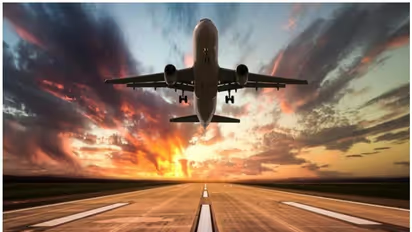Explained: Why 5G switch in US is making airlines feel turbulence
Published : Jan 19, 2022, 08:52 PM IST
Wireless operators AT&T and Verizon officially launched their high-speed 5G networks in the United States on Wednesday but stayed off from airports
Find the latest Technology News covering Smartphone Updates, AI (Artificial Intelligence) breakthroughs, and innovations in space exploration. Stay updated on gadgets, apps, and digital trends with expert reviews, product comparisons, and tech insights. Download the Asianet News Official App from the Android Play Store and iPhone App Store for everything shaping the future of technology.
